Spatial reasoning Geometry Worksheets for Ages 3-8
5 filtered results
-
From - To
Boost your child's spatial reasoning with our engaging Geometry Worksheets tailored for ages 3-8. Designed to foster critical thinking and problem-solving, these worksheets help young learners understand shapes, sizes, patterns, and positions in a fun, interactive way. Developed by educational experts, each activity encourages hands-on learning, enhancing your child's cognitive and visual-spatial skills essential for math success. Whether at home or in the classroom, these printables offer a perfect blend of education and entertainment, ensuring a delightful learning journey. Unleash your child's potential with our comprehensive collection of spatial reasoning geometry worksheets today!
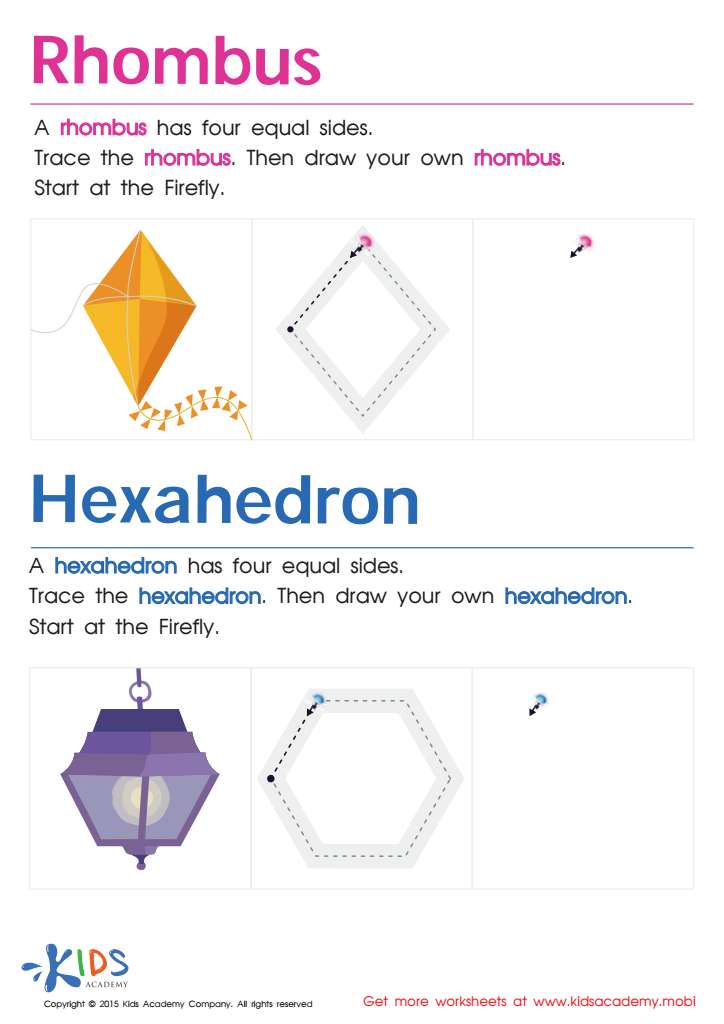

Draw a Rhombus And a Hexahedron Printable
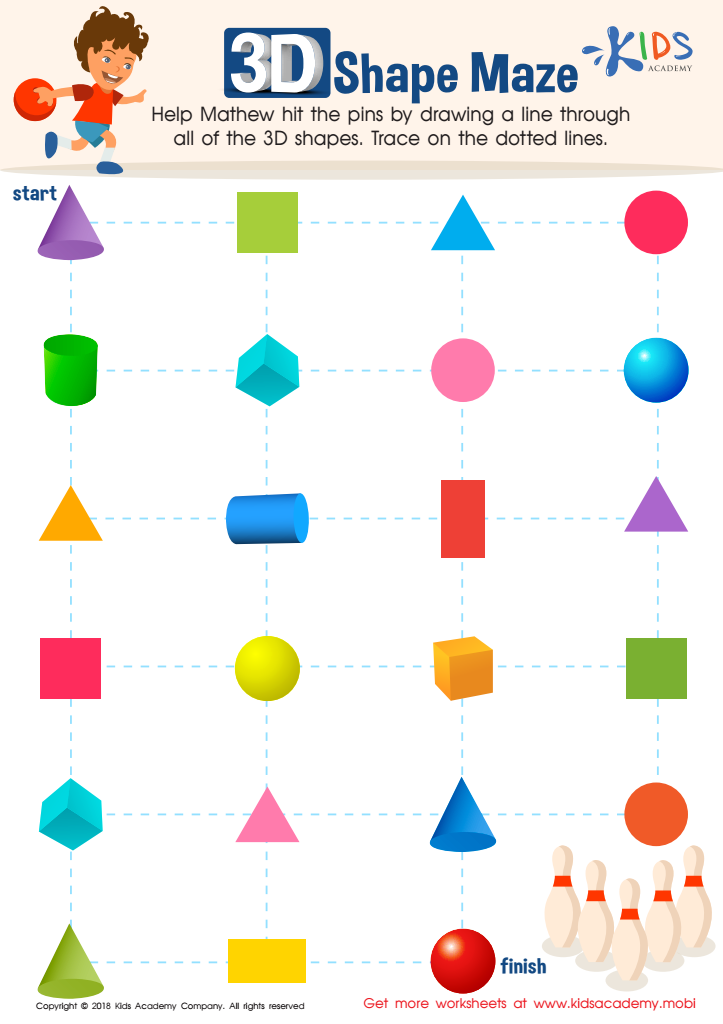

Shapes Maze Geometry Worksheet
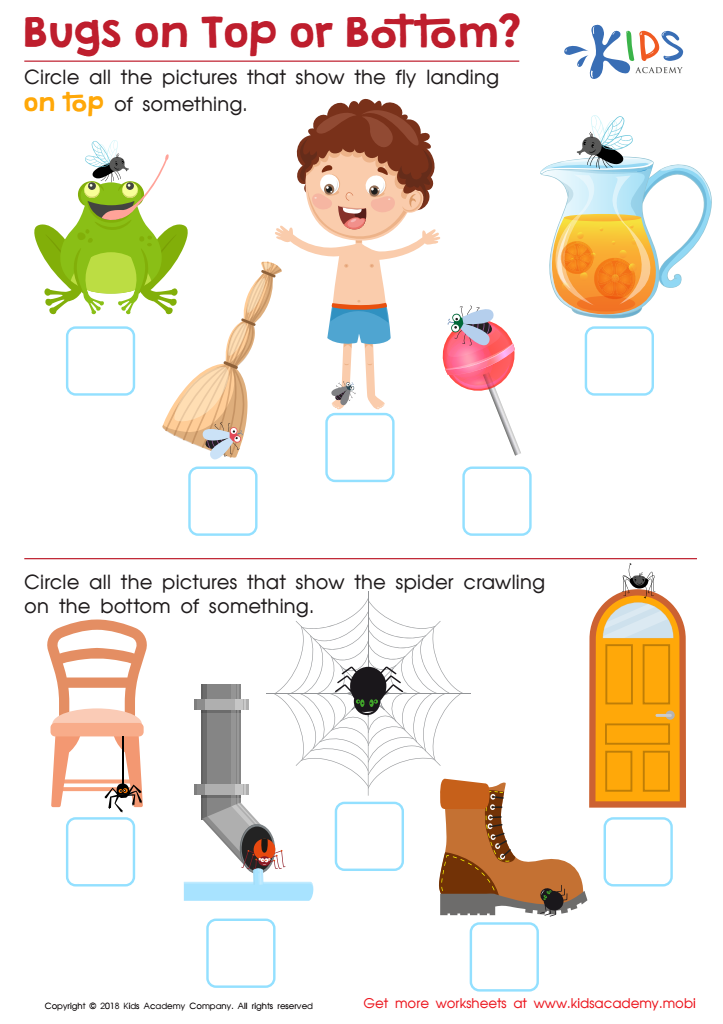

Bugs on Top or Bottom? Worksheet
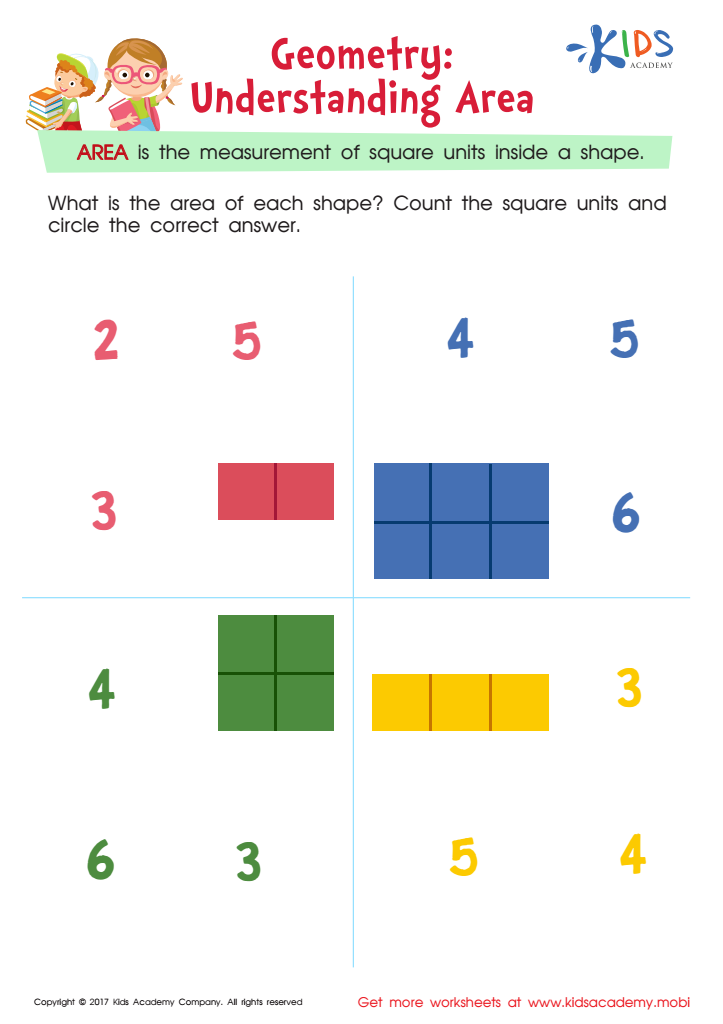

Understanding Area Worksheet
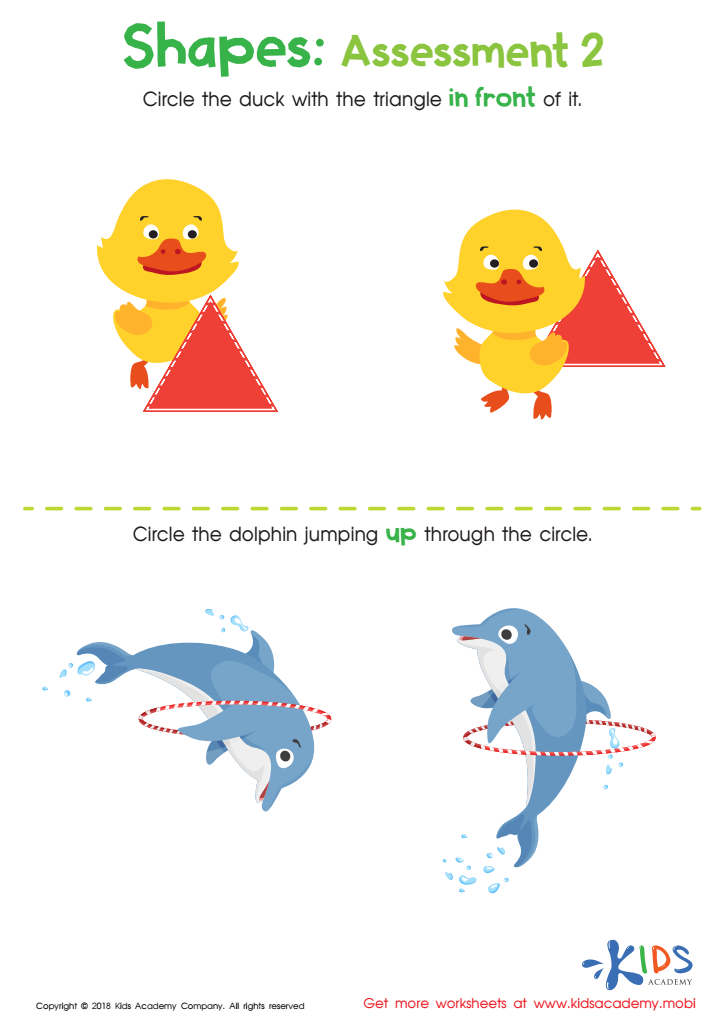

Geometry – Assessment 2 Worksheet
Spatial reasoning and geometry are foundational skills that parents and teachers should prioritize for children ages 3-8 because they lay the groundwork for future success in mathematics, science, engineering, and everyday problem-solving. During these early years, young minds are exceptionally adept at absorbing new concepts, positioning spatial reasoning as a critical part of cognitive development.
Spatial reasoning involves the ability to visualize and manipulate objects in space, which improves kids' understanding of shapes, patterns, and their positions relative to each other. This skill helps children comprehend more complex mathematical concepts down the line, such as algebra, calculus, and geometry. Early engagement with these ideas boosts children's abilities to think visually and abstractly, both of which are vital for tackling problems efficiently and creatively in multiple domains.
Moreover, introducing geometry and spatial reasoning from a young age enhances learning in related subjects including science, technology, engineering, and even artistic fields like sculpture and design. These skills also find practical utility in day-to-day activities such as reading maps, packing objects, and organizing physical space.
By supporting children in playing with blocks, puzzles, drawing shapes, and other spatial activities, parents and educators can significantly contribute to their cognitive development. Encouraging these skills nurtures a child's confidence and enthusiasm for learning, setting up a strong foundation for future educational milestones.
 Assign to My Students
Assign to My Students































